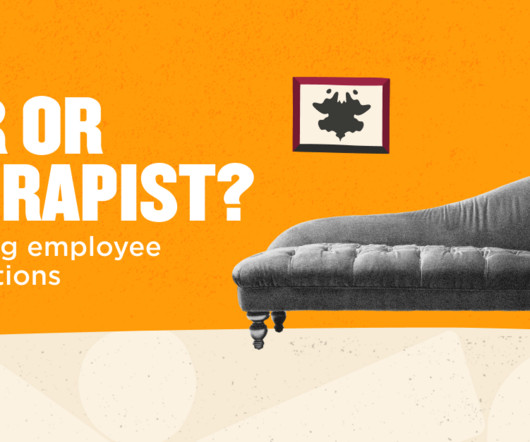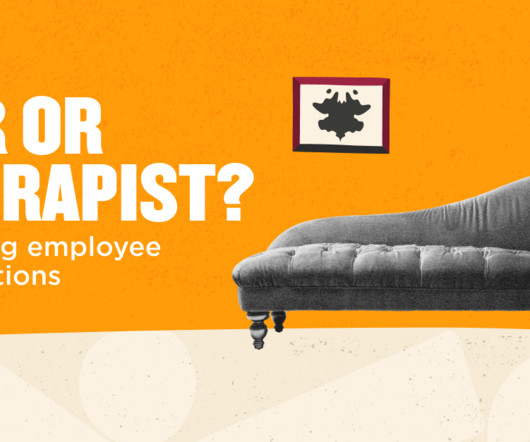From burnout to balance: Navigating the role of HR in employee wellbeing
HiBob
MAY 10, 2023
Overstepping these conversational boundaries with colleagues, managers, and HR can disrupt team coherency and productivity. But too much involvement in people’s personal affairs can be unethical and present a conflict of interest. It can also be a major contributor to HR and managers’ burnout.
























Let's personalize your content